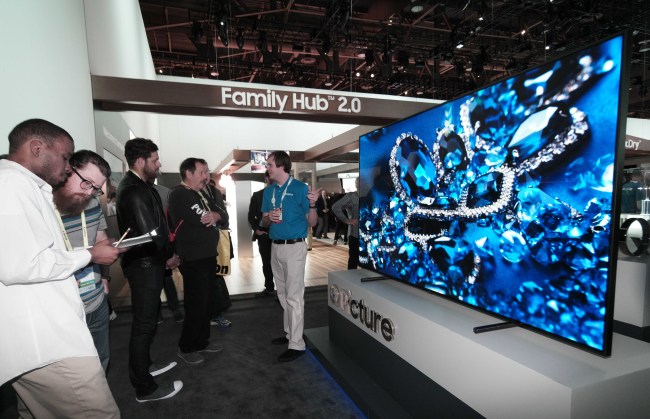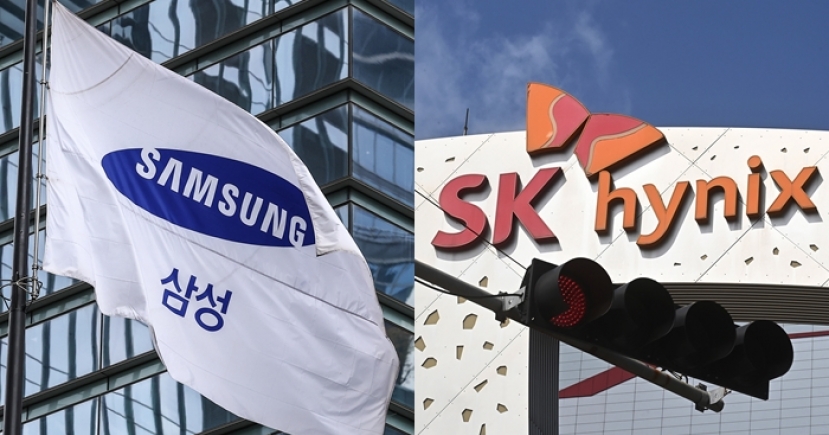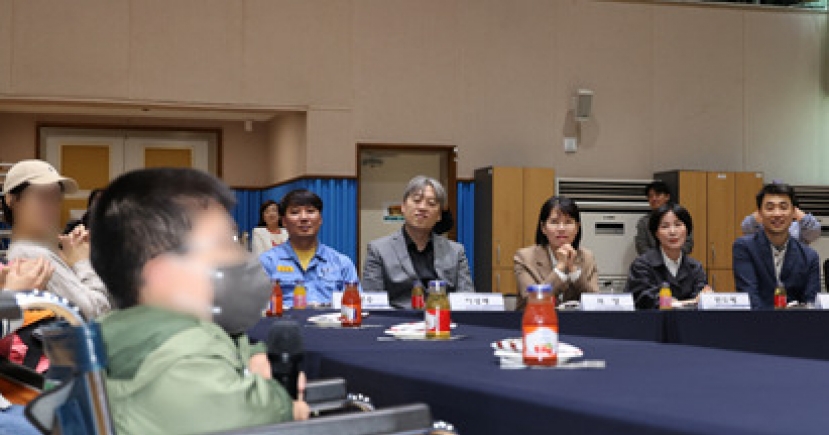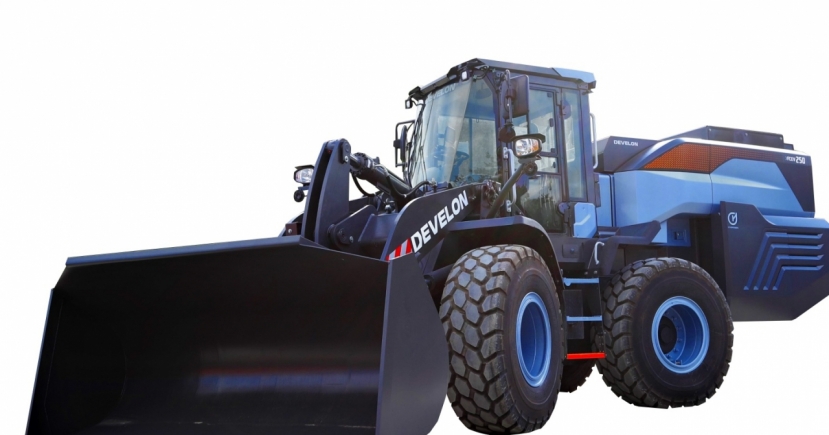Samsung
CES 2017 brought consumers closer to smart home, self-driving
[THE INVESTOR] South Korean businesses won global recognition for their efforts to build a highly connected life at the world’s largest electronics show that closed on Sunday in Las Vegas.
Celebrating the 50th anniversary this year, the Consumer Electronics Show 2017 has brought consumers one step closer to smart home, artificial intelligence, robots and self-driving cars as about 3,800 electronics, IT and automobile companies from around 150 countries introduced their latest products to the world.
Smart home was arguably the main theme of this year’s show as electronics makers showed significance advancement in their Internet of Things and artificial intelligence technologies.
Samsung Electronics showcased its smart home appliances including a refrigerator, a washing machine and other kitchen appliances, which are all connected through Wi-Fi technology and controllable by users’ smartphones.
Archrival LG Electronics also debuted an array of smart home appliances and robots to the world show, featuring big data, cloud and IoT technologies.
On televisions, Samsung and LG sparred over with two different technologies. Samsung ditched its premium OLED TVs and introduced the newest quantum dot QLED series, after having unveiled the industry’s first quantum dot QLED TV series on Jan. 3.
 |
LG Electronics, meanwhile, stuck to the OLED technology, showcasing its advanced television with nano cell technology at the show to take aim at Samsung’s quantum dot QLED TVs.
On the last day of the show, Samsung announced it received the Cutting Edge Award in recognition of the company’s cadmium-free quantum dot technology at the Sustainable Materials Management Award hosted by the US Environmental Protection Agency.
Convergence between IT and automobiles was another hot topic of the CES 2017.
Some 138 leading auto-tech exhibitors boasted self-driving cars equipped with cutting edge technology, such as voice recognition, throughout the four day global IT event.
According to Boston Consulting Group, the autonomy business will expand to be worth $42 billion.
Korea’s No.1 automaker Hyundai Motors, which participated in the CES 2017 for the first time, introduced the Ionic Electric autonomous car.
Successful test drives of the Iconic EV during the night travelled 4.5 kilometers around the Las Vegas Convention Center, gave the local automaker a boost in stance as a strong holder in automotive technology.
According to Hyundai Motors, the Ionic is equipped with three cameras that recognize objects and three LiDARs, the most important component of a self-driving car.
The lineup has received a level four, with level zero being the least reliable and level five the best, on autonomous driving technology by the Society of Automotive Engineers.
Hyundai and Kia Motors, which plans to commercialize fully autonomous cars by 2030, will invest some 2 trillion won in the smart car sector until 2018.
The highly popular Faraday Future, a Chinese-backed startup that focus on electric car development, unveiled the world’s fastest self-driving electric car that will mark its first production vehicle, dubbed the FF91.
According to Faraday, the latest model has 30 sensors including radar and cameras, while using facial recognition for keyless entry.
It can also find its own parking space and the owner can direct the FF91 vehicle to his or her location through a smartphone app.
At the CES, Faraday will begin taking reservations this March for the FF91 lineup with $5,000 deposits for deliveries next year.
Faraday has been under the spotlight for beating Tesla’s key benchmarks, such as accelerating force and battery life expectancy.
On wearable IT devices, Samsung introduced some accessories and expanded software compatibility.
Samsung announced Saturday its expansion of iOS compatibility across its latest Gear devices including the Gear S3, Gear S2 and Gear Fit2 with an aim to allow its users to connect with Apple devices.
Starting that day users can download the Samsung Gear S app for the Gear S2 and Gear S3 or the Samsung Gear Fit app for the Gear Fit2 on compatible iOS devices from the Apple App Store, the company said.
Samsung also unveiled a portable photo printer and a Bluetooth speaker for smartphones at the event.
By Song Su-hyun and Kim Bo-gyung/The Korea Herald (song@heraldcorp.com) (lisakim425@herald.com)




![[Herald Interview] Why Toss invited hackers to penetrate its system](http://res.heraldm.com/phpwas/restmb_idxmake.php?idx=151&simg=/content/image/2024/04/22/20240422050569_0.jpg)


![[KH Explains] Will 6-day workweek for executives help Samsung avert crisis?](http://res.heraldm.com/phpwas/restmb_idxmake.php?idx=151&simg=/content/image/2024/04/21/20240421050096_0.jpg)
